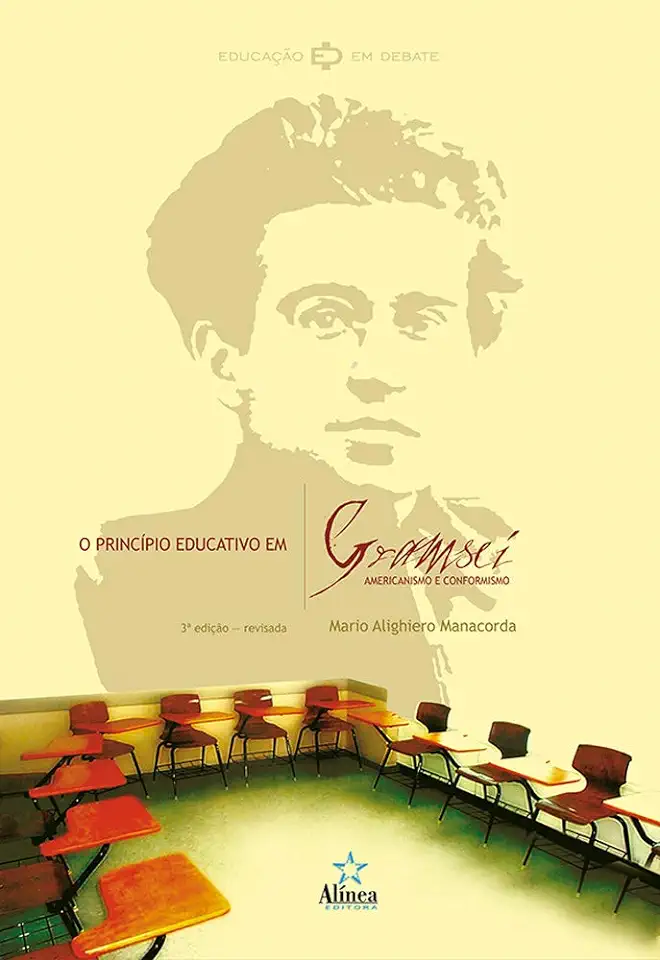
The Educational Principle in Gramsci - Mario A. Manacorda
The Educational Principle in Gramsci: A Comprehensive Summary
Introduction
In his seminal work, "The Educational Principle in Gramsci," Mario A. Manacorda delves into the educational philosophy of Antonio Gramsci, one of the most influential thinkers of the 20th century. Manacorda meticulously examines Gramsci's writings, extracting his profound insights on education and its transformative potential in shaping society. This comprehensive summary aims to provide an overview of the key themes and arguments presented in the book, highlighting its significance and relevance in contemporary educational discourse.
Gramsci's Educational Philosophy: A Revolutionary Approach
Gramsci's educational philosophy stands in stark contrast to traditional notions of education as a mere transmission of knowledge. He argues that education should not be limited to the acquisition of information but should serve as a tool for critical thinking, social transformation, and the empowerment of the working class. Gramsci believed that education should be rooted in the lived experiences of individuals and should enable them to understand and challenge the existing social order.
The Hegemonic Role of Education
Gramsci emphasizes the hegemonic role of education in perpetuating and legitimizing the dominant social order. He argues that the education system is not neutral but rather serves the interests of the ruling class by promoting their values, ideologies, and cultural norms. Gramsci's concept of hegemony highlights the subtle ways in which power is exercised through cultural and ideological means, shaping individuals' perceptions and beliefs.
Counter-Hegemonic Education: A Path to Liberation
In response to the hegemonic nature of traditional education, Gramsci proposes the concept of counter-hegemonic education. He envisions an education that challenges the dominant ideologies and empowers individuals to develop critical consciousness. Counter-hegemonic education aims to foster a transformative understanding of society, enabling individuals to recognize and challenge oppressive structures and work towards social change.
The Organic Intellectual: A Catalyst for Social Transformation
Gramsci introduces the concept of the organic intellectual, an individual who emerges from the working class and becomes a critical thinker and leader. Organic intellectuals play a crucial role in counter-hegemonic education by providing the necessary intellectual leadership and guidance for social transformation. They bridge the gap between theory and practice, translating abstract ideas into concrete actions that challenge the existing order.
The Importance of Education in Political Struggle
Gramsci underscores the vital role of education in political struggle. He argues that education is not merely a passive tool for social change but an active force that can mobilize and empower the working class. By raising their consciousness and providing them with critical analytical skills, education enables individuals to become active agents of social transformation and challenge the hegemony of the ruling class.
Relevance in Contemporary Educational Discourse
"The Educational Principle in Gramsci" remains a seminal work in educational theory and continues to resonate in contemporary educational discourse. Gramsci's insights on the hegemonic role of education, the importance of counter-hegemonic education, and the role of the organic intellectual offer valuable perspectives for understanding and transforming educational systems. His work inspires educators, activists, and scholars to critically examine the purpose and practices of education and to work towards creating a more just and equitable society.
Conclusion
Mario A. Manacorda's "The Educational Principle in Gramsci" is a profound exploration of Gramsci's educational philosophy and its implications for social change. By emphasizing the transformative potential of education, Gramsci challenges traditional notions of education and offers a framework for understanding and resisting the hegemonic forces that shape our societies. This book is a must-read for anyone interested in education, social justice, and the pursuit of a more democratic and equitable world.